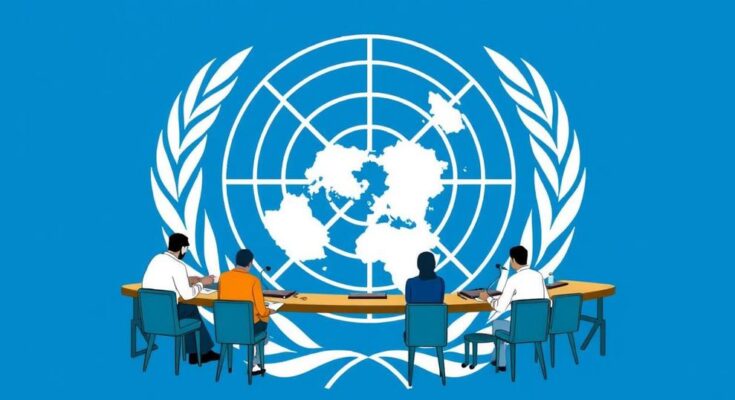The Center for Reproductive Rights is pursuing landmark cases at the UN to protect young girls in Ecuador, Guatemala, and Nicaragua who were denied abortion after sexual violence. These cases challenge systemic violations and aim to set precedents for sexual and reproductive health rights in Latin America and beyond. The rulings could significantly influence laws and ensure accountability for governments.
The Center for Reproductive Rights, alongside partners, is pursuing groundbreaking cases at the UN aimed at protecting the rights of girls denied abortion after sexual violence in Ecuador, Guatemala, and Nicaragua. The cases highlight the urgent need for accountability, particularly for four girls who were forced to endure unwanted pregnancies after experiencing abuse while under 14 years old. By seeking justice, the Center hopes to reshape sexual and reproductive health rights across Latin America and beyond. These cases, collectively known as the “Son niñas, no madres” (“They are Girls, Not Mothers”) initiative, draw attention to the systemic violations faced by young girls in the region. They reflect a pressing concern where victims of sexual violence are subjected to forced childbirth, a grim reality that necessitates change in national laws. The litigation advocates for countries to establish legal frameworks that uphold the sexual and reproductive rights of women and girls. The potential impact of a favorable ruling by the UN Human Rights Committee is significant, as it could strengthen protections for sexual and reproductive health rights throughout Latin America and set a global precedent. Currently, practices across the region result in many girls experiencing forced pregnancies, which is a gross violation of their human rights. The collective push for reform aims to end these injustices. At the heart of the cases are Fátima, Lucía, Norma, and Susana, who are bravely demanding recognition of their rights. Each girl has faced harrowing experiences of sexual violence and the trauma of enforced motherhood. Their stories exemplify the urgent need for the UN to intervene and to create standards that prevent such violations from occurring in the future. The UN Human Rights Committee, responsible for overseeing compliance with the International Covenant on Civil and Political Rights, is now called to deliberate on these cases. As the voices demanding change resonate louder, the call for revised abortion laws that allow safe access to reproductive health care gains momentum. The hope is for a judicial shift that respects the autonomy and rights of young girls throughout Latin America. The landscape of reproductive rights in Latin America remains precarious. Despite movements advocating for change, many still face harsh restrictions on abortion. Places like Honduras and El Salvador maintain total bans, forcing countless women and girls into dangerous situations. The challenge remains of balancing cultural attitudes while ensuring basic health care is accessible to the most vulnerable populations.
The Center for Reproductive Rights is challenging the reproductive rights landscape in Latin America, focusing on the plight of young girls subjected to sexual violence. The cases filed at the UN Human Rights Committee stem from systemic violations, such as forced pregnancies that undermine the dignity and agency of children. By confronting governments in Ecuador, Guatemala, and Nicaragua, the Center aims to reform laws that continue to subject girls to severe disadvantages and health risks. The unfolding judicial actions could also have ripple effects in other regions grappling with similar inequalities.
The ongoing legal battles represent a pivotal moment for reproductive health rights, especially for young girls in Latin America. As the Center for Reproductive Rights strives for recognition and reform, the UN Human Rights Committee stands at a crossroads that could alter the trajectory of reproductive justice. The decisions reached in these cases may not only hold governments accountable but could affirm the rights of survivors and set new international human rights standards.
Original Source: reproductiverights.org



